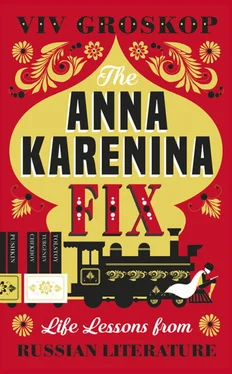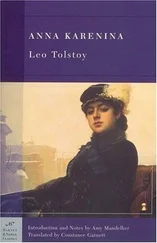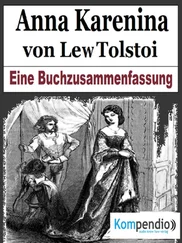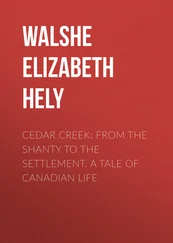Viv Groskop - The Anna Karenina Fix - Life Lessons from Russian Literature
Здесь есть возможность читать онлайн «Viv Groskop - The Anna Karenina Fix - Life Lessons from Russian Literature» весь текст электронной книги совершенно бесплатно (целиком полную версию без сокращений). В некоторых случаях можно слушать аудио, скачать через торрент в формате fb2 и присутствует краткое содержание. Город: London, Год выпуска: 2017, ISBN: 2017, Издательство: Fig Tree, Жанр: Публицистика, Критика, на английском языке. Описание произведения, (предисловие) а так же отзывы посетителей доступны на портале библиотеки ЛибКат.
- Название:The Anna Karenina Fix: Life Lessons from Russian Literature
- Автор:
- Издательство:Fig Tree
- Жанр:
- Год:2017
- Город:London
- ISBN:978-0-241-98126-9
- Рейтинг книги:3 / 5. Голосов: 1
-
Избранное:Добавить в избранное
- Отзывы:
-
Ваша оценка:
- 60
- 1
- 2
- 3
- 4
- 5
The Anna Karenina Fix: Life Lessons from Russian Literature: краткое содержание, описание и аннотация
Предлагаем к чтению аннотацию, описание, краткое содержание или предисловие (зависит от того, что написал сам автор книги «The Anna Karenina Fix: Life Lessons from Russian Literature»). Если вы не нашли необходимую информацию о книге — напишите в комментариях, мы постараемся отыскать её.
‘A passionate, hilarious, joyful love letter to Russian literature’ Allison Pearson, Sunday Telegraph
‘A delightful primer and companion to all the authors you are ashamed to admit you haven’t read’ The Times
The Anna Karenina Fix: Life Lessons from Russian Literature — читать онлайн бесплатно полную книгу (весь текст) целиком
Ниже представлен текст книги, разбитый по страницам. Система сохранения места последней прочитанной страницы, позволяет с удобством читать онлайн бесплатно книгу «The Anna Karenina Fix: Life Lessons from Russian Literature», без необходимости каждый раз заново искать на чём Вы остановились. Поставьте закладку, и сможете в любой момент перейти на страницу, на которой закончили чтение.
Интервал:
Закладка:
Prince Andrei returns from war to find his wife dying in childbirth. Now, he and Pierre are both feeling guilty at having caused the suffering of others. Andrei recovers sufficiently to travel to St Petersburg to further his military career and there, at a ball, he meets Natasha and they fall in love. Prince Andrei’s grumpy father opposes the match, asking them to wait a year before marrying. Prince Andrei goes abroad to have his war wounds treated.
While he’s away, Natasha goes to Moscow and meets Hélène and her creepy brother Anatole. The two siblings conspire to imperil Natasha’s honour, and she is seduced by Anatole, agreeing to elope with him. She breaks off her engagement to Andrei. But their plans to elope are uncovered and Natasha is disgraced. She tries to commit suicide. Andrei returns and refuses to propose to her again. Pierre attempts to persuade him but realizes that he has fallen in love with Natasha himself. The great comet of 1812 is seen in the sky, considered a portentous sign of the invasion by Napoleon.
The little Frenchman is indeed advancing by this point, and Pierre becomes obsessed with the idea that he, Pierre, must kill Napoleon. (This is a really bad idea, as Pierre has no military knowledge or physical strength. Also, he is fairly inept.) Maria tends to her dying father and is left as mistress of the family’s country seat. Nikolai Rostov is among the troops passing through Maria’s district. The two meet and fall in love. Pierre goes to the front and flounders around, distressed by the useless slaughter. Prince Andrei is also at the front. When he is wounded by a shell, he finds himself in the operating theatre next to Anatole Kuragin, who is having his leg amputated.
Natasha sets up her home as a station for wounded soldiers. Prince Andrei is one of the soldiers sent there. Natasha nurses him. By this point, Prince Andrei must be afraid to close his eyes as, every time he opens them, someone from his past is on the bed next to him. Anyway, he dies, but not before forgiving Natasha. Napoleon enters Moscow. Pierre continues to attempt various heroics, at one point saving a child from a fire. Hélène dies, probably from some kind of abortion-causing medicine. Nikolai thinks about marrying Maria. He receives a letter from Sonya, releasing him from any understanding. It’s a letter Sonya has been forced to write by Nikolai’s mother (who still hopes he will marry into money). Pierre is captured by the French. He meets the prisoner Platon Karatayev, who tells him the meaning of life.
Napoleon makes some crucial errors and has to abandon Moscow, while the Russians allow the French to retreat. Dolokhov and Denisov attack the fleeing French and free Pierre. Natasha and Pierre are reunited and, eventually, decide to marry. Nikolai marries Maria. There is some musing about the existence of bees in the epilogue, and Tolstoy concludes that free will is an illusion. He goes on a bit about Copernicus and Newton and Voltaire. That’s it. War and Peace aficionados will note that I have not mentioned much about General Kutuzov, Count Rostopchin or the Battle of Borodino. All I can say in my defence is that we all find our ways of getting through this novel, and let’s not judge.
One of the things that fascinates me most about War and Peace is Tolstoy’s ability to construct these concentric relationship circles and make them seem believable. Just as in Anna Karenina , where Anna and Vronsky can be together only because Kitty and Vronsky do not end up together (and so then Kitty can end up with Levin), so, in War and Peace , the relationship between Andrei and Natasha is doomed in order for Natasha to go off with Pierre. Similarly, Sonya needs to be dispatched to allow Maria and Nikolai their happiness. Even a minor character like Denisov suffers this ‘domino effect’ fate: his marriage proposal to Natasha is rejected, only for him to be instrumental in Pierre’s rescue later on, so that Pierre can survive and… marry Natasha.
This is a frequent lesson of Tolstoy’s: sometimes our unhappiness facilitates someone else’s happiness. It’s all meant to happen for a reason. And it is all being guided by a hand which has far more power over us than our own hopes and desires. That hand seems, in the end, to be relatively benign: despite all the suffering and misery that have been endured, there is happiness and stability at the end, and a joy in a quiet, hard-won family love that seemed out of reach to both Natasha and Pierre at many points during the novel. We don’t all get what we deserve. But we get what we get and, by accepting it, sometimes it can make us happier than we were expecting to be. Again, it’s a simple lesson: count your blessings.
What about fate? Fate is everywhere here, of course. So much so that the role of coincidence in War and Peace makes Doctor Zhivago look almost like an accurate historical record. When Dolokhov attacks a French regiment, it just happens to be the regiment holding Pierre prisoner. What are the odds? Of all the places Prince Andrei could end up in his convalescence… it has to be Natasha’s home. But Tolstoy gets away with it by spreading out the coincidences across many, many pages so that you don’t really notice them until you get to the end and look back. But we experience many incredible coincidences and bizarre outcomes in life that would never seem likely enough to use in fiction. And there would be no narrative without the interweaving of these characters who need to interact with each other across fifteen years and a huge geographical landscape. Nonetheless, it does seem a remarkable leap of faith to suggest that, if you went off to war with hundreds of thousands of other soldiers, you would end up bumping into one of your childhood chums… But who are we to criticize?
Setting aside this rich and strangely realistic narrative, Tolstoy’s entire philosophy can be summed up in one scene, in the time it takes for Pierre to eat a baked potato with a sprinkling of salt on it. This episode is the heart and soul of the book and can be read in five minutes: Volume 4, Part 1, Chapter 12 (page 1,074 in the Penguin Classics edition mentioned in the Recommended Reading list). It encapsulates the message of this book and of Tolstoy’s life overall. Of all the characters who represent Tolstoy in his own work – Levin in Anna Karenina , Pierre in War and Peace – the one who speaks the most for the author is the prisoner Platon Karatayev, the offerer of the salty potato, who appears fleetingly over the course of these five pages. Pierre meets him when they have both been captured by the French. Karatayev is a proper Russian muzhik (peasant): plain-talking, wise, the very salt of the earth. He imparts several lessons to Pierre, which take on a profound significance in the context of Tolstoy’s life long after the publication of War and Peace and, later, Anna Karenina .
Karatayev’s life lessons are simple. Be grateful for the relationship you have with your mother. (Tolstoy’s mother died when he was two.) Make sure you enjoy family life. (His father died when he was nine.) Be sure to have children of your own. (He had thirteen, eight of whom survived infancy.) If you have your own house or family estate, know that you are lucky. (Tolstoy inherited the family estate at Yasnaya Polyana in 1847, at the age of nineteen.) Put salt on your potatoes and enjoy them as if they are a special treat. (Tolstoy became an obsessive vegetarian later in life.)
Karatayev adds: ‘The great thing is to get on with other people.’ Tolstoy followed this advice only occasionally, in my view, and certainly not at the moment when he was telling Chekhov that his plays were worse than Shakespeare’s. But we can’t all follow our own advice, can we? The most important things are stoicism and resignation: ‘The beggar’s bowl or the prison hole, you have to take what comes.’ Bearing in mind that Tolstoy is aware that Pierre is the character most close to him personally, he allows Pierre to take Karatayev’s words to heart: ‘…Platon Karatayev would always stay in his mind as a most vivid and precious memory, the epitome of kind-heartedness and all things rounded and Russian.’
Читать дальшеИнтервал:
Закладка:
Похожие книги на «The Anna Karenina Fix: Life Lessons from Russian Literature»
Представляем Вашему вниманию похожие книги на «The Anna Karenina Fix: Life Lessons from Russian Literature» списком для выбора. Мы отобрали схожую по названию и смыслу литературу в надежде предоставить читателям больше вариантов отыскать новые, интересные, ещё непрочитанные произведения.
Обсуждение, отзывы о книге «The Anna Karenina Fix: Life Lessons from Russian Literature» и просто собственные мнения читателей. Оставьте ваши комментарии, напишите, что Вы думаете о произведении, его смысле или главных героях. Укажите что конкретно понравилось, а что нет, и почему Вы так считаете.












